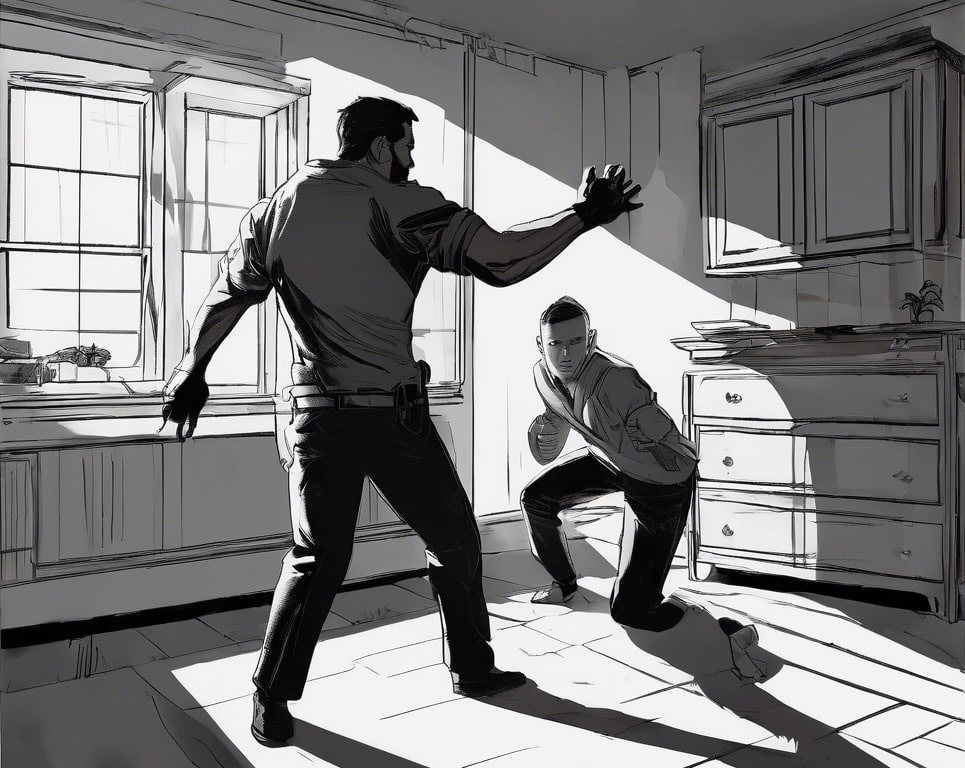
Your Legal Right to Defend Yourself and Others in Wisconsin
In Wisconsin, the right to self-defense and the defense of others is protected under state law, but it comes with specific legal standards and limitations. Codified in Wis. Stat. § 939.48 and § 939.49, these statutes establish when and how force—including deadly force—may be legally used to protect oneself, another person, or property. Understanding the details of these rights is critical if you are ever forced to defend your actions during a criminal investigation or trial.
Self-Defense Under Wisconsin Law: Wis. Stat. § 939.48
Wis. Stat. § 939.48(1) provides that a person is privileged to use force against another if the person reasonably believes that such force is necessary to prevent or terminate an unlawful interference with their person. Deadly force is only permitted if the person reasonably believes such force is necessary to prevent imminent death or great bodily harm.
Wisconsin law relies on both objective and subjective components:
• The person must subjectively believe that force is necessary.
• That belief must also be objectively reasonable based on the circumstances.
The Wisconsin Criminal Jury Instruction 815 further clarifies that self-defense is not available if the defendant provoked the attack—unless they attempted to withdraw and communicated that intent.
Defense of Others in Wisconsin
The right to defend others is essentially an extension of self-defense. If you reasonably believe that another person is in imminent danger of unlawful force, you may intervene using force as if the threat were against yourself. This right also includes the same limitations on deadly force and provocation.
Jury Instruction 825 outlines this defense, and stresses that the reasonableness of your belief in the threat and your actions will be closely evaluated by a jury.
Defense of Property: Wis. Stat. § 939.49
Under Wis. Stat. § 939.49, a person is permitted to use reasonable force to prevent or terminate what they reasonably believe to be an unlawful interference with their property.
However, the use of deadly force to protect property alone is not justified under Wisconsin law unless the circumstances also support a reasonable belief of an imminent threat of death or great bodily harm.
This is supported by Jury Instruction 855, which reinforces that the force used must be proportionate to the threat, and that property-related confrontations rarely justify the use of deadly force.
Castle Doctrine and Presumptions in Wisconsin
Wisconsin law includes a form of the Castle Doctrine—if someone unlawfully enters your home, vehicle, or business, the law presumes that you had a reasonable fear of death or great bodily harm. This can simplify the legal justification for using force in certain situations.
However, this presumption can be rebutted by the prosecution, and it does not apply if the person using force was engaged in criminal activity or if the person who was injured had a legal right to be there.
When These Defenses Apply—and When They Don’t
The key to all these defenses is reasonableness. If your actions are found to be disproportionate, provoked, or based on an unreasonable perception of danger, these defenses may not protect you.
Examples where self-defense may not apply include:
• Retaliating after a threat has ended
• Using deadly force to protect only property
• Escalating a minor confrontation into a deadly one
If you are charged with a crime after a self-defense incident, it is not enough to simply claim you were defending yourself. You need an attorney who understands how to present your actions under the correct legal standards and jury instructions.
• Learn more about our Violent Crime Defense services.
• Understand your rights if you’re facing charges related to Battery.
• Explore how we defend clients using Motions to Suppress Evidence.
• Review our experience in Domestic Violence Defense.
Defending Self-Defense Cases in Madison and Southern Wisconsin
At DK Anderson, S.C., we have extensive experience litigating self-defense and defense-of-others claims across Dane, Rock, Green, Sauk, and Jefferson Counties. These cases require deep knowledge of both statutory law and jury instructions, as well as a strong understanding of how local prosecutors and judges view these defenses.
If you’re facing criminal charges and believe your actions were justified, contact us immediately. We offer a free consultation and can help you understand your rights and build a defense based on the truth of what happened.
📞 Call Now: (608) 204-5807
Frequently Asked Questions - Self Defense in Wisconsin
Under Wisconsin’s Castle Doctrine, you are presumed to be justified in using deadly force if someone unlawfully and forcibly enters your home, vehicle, or place of business, and you reasonably believe they pose a threat of death or great bodily harm.
If you were the initial aggressor, self-defense may not apply—unless you clearly attempted to withdraw and communicated your intent to stop the confrontation.
Yes. You may use force to defend another person if you reasonably believe they are in immediate danger of unlawful harm. Your actions must be proportionate to the threat.
Yes, but only to a reasonable degree. Deadly force is not permitted to protect property unless the situation also includes a threat of serious harm or death.
Possibly. Law enforcement may arrest you depending on the facts and statements of others. An experienced criminal defense attorney can help assert your self-defense claim and file the proper legal motions.
Our Practice Areas
Drunk Driving
Whether you are charged with a first offense, or a fifth offense, our Wisconsin OWI attorneys can help.
Violent Crimes
A conviction for any one of Wisconsin's violent crimes will have significant consequences.
Drug Charges
Our Wisconsin Drug charge attorneys know the law and how to apply that law in the court room.
Domestic Violence
A conviction for a domestic violence charge in Wisconsin has additional consequences.
Property Crimes
Wisconsin property crimes include theft, forgery, and criminal damage to property.
Sex Offenses
Not much will change your life like a conviction for one of Wisconsin's sex offense charges.
Traffic Citations
Although less serious than a criminal charge, a traffic citation can effect your driver's license.
